Last Updated on September 7, 2025 by admin
Introduction to Nitib 140mg
Nitib 140mg, generically known as ibrutinib, is a groundbreaking medication that has transformed the landscape of cancer treatment since its approval. Developed by Pharmacyclics LLC in collaboration with Janssen Biotech, Inc., it received initial approval from the U.S. Food and Drug Administration (FDA) in 2013 for the treatment of certain types of blood cancers, particularly chronic lymphocytic leukemia (CLL) and mantle cell lymphoma (MCL). The drug operates by selectively inhibiting Bruton’s tyrosine kinase (BTK), a critical enzyme that plays a vital role in the signaling pathways necessary for the survival and proliferation of malignant B cells.
Nitib 140mg is particularly significant for patients with hematological malignancies. CLL, for instance, is one of the most prevalent forms of leukemia affecting adults. By providing a targeted approach to treatment, Nitib 140mg has demonstrated a substantial impact on patient outcomes, potentially offering longer progression-free survival rates compared to traditional chemotherapies. Moreover, the drug has expanded its indications over time to include additional conditions such as Waldenström macroglobulinemia, marginal zone lymphoma, and chronic graft-versus-host disease (cGVHD), enhancing its position as a versatile therapy in oncology.
The development of Nitib 140mg also aligns with the increasing emphasis on precision medicine in contemporary healthcare, where treatments are tailored to the individual characteristics of each patient’s disease. Its oral administration offers greater convenience over intravenous therapies, making it easier for patients to incorporate into their daily lives. The introduction of Nitib 140mg has not only paved the way for new therapeutic strategies but has also raised expectations for future advancements in the treatment landscape, emphasizing the importance of ongoing research and development in this field.
USES OF NITIB 140mg
Nitib 140mg, known generically as ibrutinib, is an oral medication that plays a significant role in the treatment of various hematological malignancies, primarily chronic lymphocytic leukemia (CLL) and mantle cell lymphoma (MCL). CLL, a common type of leukemia in adults, involves the accumulation of abnormal lymphocytes in the blood, leading to progressive immune system compromise. Nitib 140mg functions by inhibiting Bruton’s tyrosine kinase (BTK), a crucial enzyme in the B-cell receptor signaling pathway. This inhibition effectively disrupts the survival and proliferation of malignant B-cells, thereby slowing disease progression.
In addition to its application in CLL, Nitib 140mg is also approved for the treatment of MCL, an aggressive form of non-Hodgkin lymphoma characterized by the uncontrolled growth of B-cells. Similar to its mechanism in CLL, Nitib 140mg’s action on BTK results in reduced signaling that promotes the survival of malignant cells. Clinical studies have indicated that Nitib 140mg not only prolongs progression-free survival in patients with MCL but often serves as a better-tolerated alternative to traditional chemotherapy regimens.
Moreover, Nitib 140mg has shown efficacy in treating other blood disorders such as Waldenström macroglobulinemia and chronic graft-versus-host disease, underscoring its versatility as a therapeutic agent. For patients whose conditions are marked by certain genetic mutations, Nitib 140mg offers a targeted approach, providing a potent option for individuals who may not respond adequately to conventional treatments.
The growing body of research highlights Nitib 140mg’s transformative role in cancer treatment, reinforcing its position as a cornerstone in the management of B-cell malignancies. With ongoing studies establishing further indications and refining its use, Nitib 140mg continues to shape therapeutic landscapes for those affected by these challenging conditions.
Directions for Use
Nitib 140mg, an effective treatment for various types of blood cancers, is typically administered orally. The method of taking Nitib 140mg is crucial to ensure optimal therapeutic outcomes. The standard prescribed dosage of Nitib 140mg for adult patients is usually 420 mg once daily; however, this may vary depending on the specific condition being treated, patient response, and the recommendations of the healthcare professional overseeing the treatment.
The importance of adhering to the prescribed dosage cannot be overstated. Patients are advised to take Nitib 140mg at the same time each day to maintain consistent levels of the medication in their system. This regularity aids in maximizing the efficacy of the drug while minimizing potential side effects. It is also recommended that the capsule be swallowed whole with water, avoiding crushing or chewing, as this may alter the way the medication is absorbed by the body.
In instances where a dose of Nitib 140mg is missed, the patient should take the missed dose as soon as they remember, unless it is almost time for the next scheduled dose. Under no circumstances should a patient take two doses at once to make up for a missed one. Following this guideline helps ensure safety while maintaining the medication’s therapeutic effectiveness. If there are any uncertainties regarding the administration of Nitib 140mg, patients should consult their healthcare provider for personalized advice.
In conclusion, the proper direction for the use of Nitib 140mg is essential for achieving the best possible outcomes in treatment. Adhering to the dosage and routine prescribed by a healthcare professional can significantly influence the effectiveness of this medication, emphasizing the importance of patient education and communication with healthcare providers.
Benefits of Nitib 140mg
Nitib 140mg, an innovative targeted therapy, has garnered significant attention due to its numerous benefits for patients suffering from certain hematological malignancies, including chronic lymphocytic leukemia (CLL) and mantle cell lymphoma (MCL). One of the primary advantages of Nitib 140mg is its ability to effectively target and inhibit Bruton’s tyrosine kinase (BTK), a crucial enzyme involved in the survival and proliferation of cancerous B-cells. By blocking this pathway, Nitib 140mg directly impacts the cancerous cells, leading to reduced tumor burden and the slowing of disease progression.
Clinical studies have demonstrated that Nitib 140mg significantly improves response rates in patients with relapsed or refractory forms of CLL and MCL. Many patients exhibit partial or complete remission, which can lead to prolonged survival compared to traditional chemotherapy regimens. This advancement marks a considerable shift in treatment paradigms, offering hope where traditional therapies may have limited efficacy. Moreover, the oral administration route of Nitib 140mg simplifies the treatment regimen, allowing patients to manage their therapy more conveniently from home, reducing the need for frequent hospital visits.
The benefits of Nitib 140mg extend beyond mere survival rates. Many patients report an improvement in their quality of life while on this medication. By effectively managing symptoms and reducing the impact of the disease, patients may experience enhanced physical well-being and a return to daily activities that cancer previously hindered. As more patients gain access to targeted therapies like Nitib 140mg, the focus shifts toward not only prolonging life but also enhancing the overall patient experience during treatment.
In conclusion, Nitib 140mg presents a remarkable option in the landscape of cancer therapy, showcasing notable benefits that encompass effective targeting of cancerous cells, improved response rates, and a potential uplift in the quality of life for patients facing chronic conditions.
Storage of Nitib 140mg
Proper storage of Nitib 140mg is crucial to maintain its effectiveness and ensure patient safety. It is essential to store this medication at controlled room temperature, typically between 20°C to 25°C (68°F to 77°F). Fluctuations beyond this temperature range can lead to both degradation of the drug and a reduction in its therapeutic efficacy. Thus, keeping it in a stable environment is highly recommended.
In addition to temperature, humidity plays a significant role in the storage of Nitib 140mg. The ideal location for storing this medication should be dry, away from direct sunlight and excessive moisture. High humidity conditions can lead to the absorption of water by the tablets or capsules, potentially altering their chemical composition. Therefore, it is advisable to avoid storage in areas such as bathrooms or kitchens, where humidity may fluctuate.
Consideration should also be given to the container in which Nitib 140mg is stored. The original container is designed to protect the medication from light and moisture. It is essential to keep the container tightly closed when not in use to prevent contamination. Moreover, avoid transferring the medication to another container unless specifically instructed by a healthcare provider. This helps to minimize the risk of degradation or adverse reactions resulting from environmental exposure.
Lastly, it’s important to keep Nitib 140mg out of reach of children and pets. Medication that is easily accessible can lead to accidental ingestion, which could have serious safety implications. Always dispose of any expired or unused Nitib 140mg properly, following local regulations or pharmaceutical disposal guidelines.
Medicinal Benefits
Nitib 140mg, known generically as ibrutinib, has garnered considerable attention in the medical community for its role as an effective treatment for various blood cancers. Primarily, it is utilized in managing chronic lymphocytic leukemia (CLL), mantle cell lymphoma (MCL), and Waldenström’s macroglobulinemia, among others. The mechanism of action of Nitib 140mg involves inhibition of Bruton’s tyrosine kinase (BTK), which plays a crucial role in B-cell receptor signaling. This inhibition disrupts the cancer cell’s survival signals, thereby leading to decreased proliferation and enhanced apoptosis of malignant B-cells.
Clinical trials have consistently demonstrated the efficacy of Nitib 140mg in extending progression-free survival rates. For instance, a pivotal trial published in ‘The New England Journal of Medicine’ showcased that patients with CLL who received Nitib 140mg exhibited a significant reduction in tumor burden compared to those administered traditional chemotherapy. Furthermore, Nitib 140mg’s favorable safety profile, reporting a lower incidence of severe cytopenias compared to chemotherapy regimens, underscores its applicability as a first-line treatment option.
In combination therapy, Nitib 140mg has shown potential synergistic effects when used with other agents such as obinutuzumab, leading to even greater improvements in patient outcomes. Studies indicate that this combination not only enhances response rates but also supports the durability of remission in CLL patients. Such findings highlight the versatility of Nitib 140mg in tailoring treatment plans that cater to individual patient needs while maximizing therapeutic effects.
The ongoing research and emerging data continue to solidify Nitib 140mg’s role in the oncological landscape, providing hope for improved management of hematologic malignancies. As new therapeutic protocols evolve, the medicinal benefits of Nitib 140mg will likely expand, offering further insights into its long-term impacts on patient care.
Drug Warnings
Nitib 140mg (ibrutinib) is a targeted therapy primarily utilized in the treatment of various hematological malignancies, including chronic lymphocytic leukemia and mantle cell lymphoma. Despite its therapeutic benefits, it is crucial to acknowledge significant warnings associated with its use. Firstly, Nitib 140mg is contraindicated in patients with a history of hypersensitivity reactions to the drug or its components. Such reactions may present as severe skin rashes or anaphylaxis, necessitating immediate cessation of the medication and consultation with healthcare providers.
Furthermore, patients with additional health issues should exercise caution when considering Nitib 140mg. For instance, individuals with a history of cardiac arrhythmias, particularly atrial fibrillation, may face an increased risk of adverse cardiac events when undergoing treatment. The risk of bleeding is another serious concern, particularly in patients undergoing anticoagulation therapy or those with bleeding disorders. It is vital for such individuals to discuss their full medical history with their healthcare provider before starting Nitib 140mg to ensure personalized treatment planning and monitoring.
Additionally, the use of Nitib 140mg should be closely monitored in patients with hepatic impairment, as dosage adjustments may be necessary to mitigate risks of toxicity, which can arise due to altered drug metabolism. Patients must be vigilant for potential side effects, including but not limited to severe infections, low blood counts, and gastrointestinal complications. Regular medical check-ups and open communication regarding any new symptoms or changes in health status are essential to address any emergent issues effectively.
Overall, understanding the warnings associated with Nitib 140mg is imperative to optimize its effectiveness while minimizing potential risks. Discussing these considerations with a qualified healthcare provider enhances patient safety and treatment efficacy.
Drug Interactions
Nitib 140mg (ibrutinib) is a targeted therapy frequently used in the treatment of certain blood cancers, including chronic lymphocytic leukemia (CLL) and mantle cell lymphoma (MCL). While it has shown significant benefits, understanding potential drug interactions is vital for ensuring both its efficacy and the safety of patients. Nitib 140mg may interact with a variety of medications, which can either enhance or reduce its effectiveness or lead to harmful side effects.
One major category of medications to consider are those that affect liver enzymes, particularly the cytochrome P450 family. Protease inhibitors, for instance, may increase the levels of Nitib 140mg in the bloodstream, leading to heightened side effects such as bleeding risks or gastrointestinal issues. Conversely, certain medications that induce these enzymes may lower the concentration of Nitib 140mg, potentially diminishing its therapeutic effect. Examples include some anticonvulsants and antibiotics, such as rifampin, that can reduce the effectiveness of Nitib 140mg by increasing its metabolism.
Another significant interaction to note involves anticoagulants or antiplatelet drugs. Using Nitib 140mg alongside these medications may heighten the risk of bleeding complications, which necessitates careful monitoring and potential dose adjustments. It is also crucial for healthcare providers to be aware of any over-the-counter medications or herbal supplements a patient might be taking. For instance, St. John’s Wort is known to induce liver enzymes, posing a risk to the stability and effectiveness of Nitib 140mg therapy. Furthermore, medications that lower platelet counts or affect blood clotting should be thoroughly evaluated during patient treatment planning.
Ultimately, thorough communication with healthcare providers regarding all medications being taken is essential. Regular assessments can help mitigate risks associated with drug interactions, ensuring that Nitib 140mg remains a safe and effective part of the treatment regimen.
How to Use Nitib 140mg Effectively
To maximize the effectiveness of Nitib 140mg, it is essential to adhere to the prescribed dosage and schedule recommended by your healthcare professional. Nitib 140mg, the brand name for ibrutinib, is typically taken as an oral capsule and should be consumed once daily. Consistency in timing can aid in maintaining stable levels of the medication in your bloodstream, thereby enhancing its efficacy. It is crucial to swallow the capsule whole and not to crush or chew it, as this could affect the medication’s delivery and absorption.
In addition to adhering to the prescribed dosage, adopting certain lifestyle adjustments can also improve treatment outcomes. Patients are advised to maintain a balanced diet rich in nutrients, which can support overall health and bolster the immune system. Staying adequately hydrated is equally important, as it can help mitigate potential side effects associated with the medication. Regular physical activity, as recommended by a healthcare professional, has also been shown to improve well-being and may contribute positively to the treatment experience.
Moreover, open communication with healthcare professionals regarding your individual treatment plan is critical. It is advisable to discuss any side effects or symptoms you might experience while on Nitib 140mg. By doing so, adjustments can be made to your treatment regimen, ensuring that it is finely tuned to your body’s needs. Healthcare providers may also offer advice on managing side effects and optimizing your overall health during treatment.
In summary, effective use of Nitib 140mg hinges on strict adherence to dosage schedules, supportive lifestyle choices, and regular consultations with healthcare professionals. These factors collectively contribute to enhancing the treatment’s effectiveness and ensuring the best possible outcomes for patients undergoing therapy with Nitib 140mg.
Side Effects of Nitib 140mg
Nitib 140mg, an innovative medication used primarily for the treatment of certain types of blood cancers, such as chronic lymphocytic leukemia (CLL) and mantle cell lymphoma (MCL), can cause a range of side effects. Understanding these side effects is crucial for patients and healthcare providers alike, as it aids in effective treatment management and enhances patient safety.
Common side effects associated with Nitib 140mg include fatigue, diarrhea, and nausea. These effects typically occur as the body adjusts to the medication. Fatigue can range from mild tiredness to significant lethargy which may impact daily activities. Diarrhea, often described as loose or watery stools, may occur and can sometimes lead to dehydration if not managed properly. Nausea can cause discomfort and may result in difficulties with eating or maintaining a balanced diet. Regular monitoring and communication with healthcare providers can help mitigate these effects.
In addition to these common reactions, Nitib 140mg can lead to more severe side effects that require immediate medical intervention. Serious adverse reactions may include signs of bleeding such as unusual bruising or blood in urine, which can indicate potential hematologic issues. Additionally, patients may experience an increased risk of infections, particularly respiratory infections, due to immune system suppression. Symptoms like fever, chills, or persistent cough should be evaluated promptly to ensure appropriate medical care.
Furthermore, liver function should be regularly assessed as Nitib 140mg has been associated with liver enzyme elevation. Symptoms indicative of liver complications may include yellowing of the skin or eyes, dark urine, and abdominal pain. Vigilance in observing and reporting any adverse effects during treatment fosters proactive engagement with healthcare professionals, thus ensuring comprehensive patient safety.
General Warnings and Safety Advice
Patients considering the use of Nitib 140mg should be aware of several important warnings and safety considerations associated with this medication. Nitib 140mg, known generically as ibrutinib, is a targeted therapy often used to treat certain types of cancer, including chronic lymphocytic leukemia (CLL) and mantle cell lymphoma (MCL). However, its use comes with potential risks that necessitate careful monitoring and precaution.
One of the primary concerns involves potential bleeding issues. Individuals using Nitib 140mg may experience an increased risk of bleeding and bruising, especially if they are taking anticoagulants or other medications that can affect blood clotting. It is essential for patients to inform their healthcare providers of all medications they are taking to mitigate these risks effectively. Regular blood tests may also be necessary to monitor platelet levels and overall blood coagulation status.
Additionally, patients should also be alerted to the potential for cardiac complications. There have been reports of arrhythmias among those on Nitib 140mg therapy. Therefore, individuals with a history of heart problems should approach this medication with caution, and regular cardiovascular assessments may be warranted during treatment.
Furthermore, patients are advised to promptly report any new symptoms, such as unusual fatigue, fever, or signs of infection, as Nitib 140mg can impact immune function. Regular follow-up appointments with healthcare providers are crucial for ongoing evaluation of the patient’s overall health status and for adjusting treatment plans as necessary.
Engaging in proactive communication with healthcare teams, monitoring vital health indicators, and adhering to medical advice can foster a safer treatment experience with Nitib 140mg. Remember that each patient’s response to treatment can vary; hence, personalized medical guidance is essential.
Common side effects of Nitib 140 mg
- Headache
- Fever
- Diarrhea
- Stomatitis (Inflammation of the mouth)
- Nausea
- Low blood platelets
- Decreased white blood cell count (neutrophils)
- Fatigue
- Musculoskeletal (bone, muscle or joint) pain
- Rash
- Anemia (low number of red blood cells)
- Bruising
- Muscle spasm
- Hemorrhage
- Pneumonia
- Cough
- Dry eye
- High blood pressure
- Weight loss
- Urinary tract infection
- Peripheral edema
- Subdural hematoma
- Second primary malignancies
Severe side effects of Nitib 140 mg
- Tumor lysis syndrome
SAFETY ADVICE
warnings
![]() Alcohol
Alcohol
CONSULT YOUR DOCTOR
It is not known whether it is safe to consume alcohol with Nitib 140mg Capsule. Please consult your doctor.
warnings
![]() Pregnancy
Pregnancy
CONSULT YOUR DOCTOR
Nitib 140mg Capsule is unsafe to use during pregnancy as there is definite evidence of risk to the developing baby. However, the doctor may rarely prescribe it in some life-threatening situations if the benefits are more than the potential risks. Please consult your doctor.
warnings
![]() Breast feeding
Breast feeding
CAUTION
Nitib 140mg Capsule should be used with caution during breastfeeding. Breastfeeding should be held until the treatment of the mother is completed and the drug is eliminated from her body.
warnings
![]() Driving
Driving
UNSAFE
Nitib 140mg Capsule may cause side effects which could affect your ability to drive.
warnings
![]() Kidney
Kidney
CAUTION
Nitib 140mg Capsule should be used with caution in patients with kidney disease. Dose adjustment of Nitib 140mg Capsule may be needed. Please consult your doctor.
warnings
![]() Liver
Liver
CAUTION
Nitib 140mg Capsule should be used with caution in patients with liver disease. Dose adjustment of Nitib 140mg Capsule may be needed. Please consult your doctor.
warnings
![]() CHILDREN CAUTION
CHILDREN CAUTION
UNSAFE
Nitib Tablet is not recommended for use in children and adolescents below 18 years.
![]()
Habit Forming Nitib 140mg Tablet
Nitib 140mg Tablet is not habit-forming, meaning it does not have addictive properties. It is a prescription medication that should be taken only as directed by your healthcare provider.
![]() expert advice
expert advice
- Take it at the same time every day, either with or without food.
- It is advisable to stay hydrated and drink plenty of fluids while taking this medication.
- Do not skip any dose and complete the course as suggested by your doctor.
- Use an effective method of birth control to avoid pregnancy while taking this medication.
- Your doctor may get regular blood tests done to monitor your liver function and blood cell count in your blood.
Conclusion
Nitib 140mg Tablet is a valuable medication used in the treatment of certain types of cancers. Its medicinal benefits, directions for use, storage guidelines, and potential side effects, drug warnings, and interactions are all important factors to consider when using this medication.
Always consult your healthcare provider for personalized advice and guidance regarding the use of Nitib 140mg Tablet or any other medication.
Dietary Considerations While on Nitib 140mg
Patients undergoing treatment with Nitib 140mg (ibrutinib) should consider their diet as an essential part of their overall wellness strategy. While Nitib 140mg is effective in treating certain hematological malignancies, the side effects and interactions with food can significantly impact treatment success. Therefore, adopting a well-balanced dietary regimen can help support the body during treatment and improve overall health.
It is advisable for patients to focus on a diet rich in fruits, vegetables, whole grains, and lean proteins. These foods are abundant in essential vitamins, minerals, and antioxidants, which help bolster the immune system and may mitigate some of the side effects associated with Nitib 140mg, such as fatigue and digestive issues. Specifically, incorporating leafy greens, berries, and sources of omega-3 fatty acids, such as fish and flaxseeds, can promote a healthier inflammatory response in the body.
Moreover, hydration plays a pivotal role in ensuring that the medication is metabolized effectively. Patients are encouraged to drink plenty of fluid, particularly water, to stay hydrated. It is also crucial to monitor sodium intake, as high sodium levels can contribute to fluid retention, a common concern for those on Nitib 140mg.
On the contrary, certain dietary substances should be limited or avoided while on Nitib 140mg. Grapefruit and grapefruit juice are particularly concerning, as they can interact with the metabolism of the medication, potentially leading to increased side effects or diminished effectiveness. Additionally, alcohol may exacerbate the side effects of Nitib 140mg, such as dizziness and gastrointestinal discomfort, so moderation is advised.
In conclusion, a well-rounded diet, focusing on nutrient-dense foods while avoiding certain interactions, can significantly contribute to the overall health and effectiveness of Nitib 140mg treatment. Patients should consult with healthcare providers or nutritionists to develop a tailored dietary plan that meets their specific needs and complements their treatment. This proactive approach can help optimize their treatment journey.
FAQs
Q: Can I take Nitib 140mg to prevent getting cancer in the future?
A: Nitib 140mg is not approved for use as a cancer prevention medication, and its long-term effects on healthy individuals are not fully understood. If you are concerned about your risk of developing cancer, you should speak with your doctor about appropriate cancer screening and prevention strategies.
Q: Can Nitib 140mg be taken with other medications?
A: Nitib 140mg can interact with other medications, so it is important to inform your doctor of all medications you are taking, including prescription, over-the-counter, and herbal supplements.
Q: How long do I need to take Nitib 140mg?
A: The length of treatment with Nitib 140mg will depend on your specific condition and response to the medication. Your doctor will monitor your progress and determine the duration of treatment.
Q: Can I drink alcohol while taking Nitib 140mg?
A: Alcohol consumption should be avoided while taking Nitib 140mg , as it may increase the risk of certain side effects, such as liver damage. You should talk to your doctor about any concerns you have regarding alcohol use.
Q: Can Nitib 140mg cure all types of cancer?
A: Nitib 140mg has been shown to be effective in treating certain types of blood cancers, but its efficacy in other types of cancer is still being studied. It is important to remember that cancer is a complex disease with many different causes and factors, and there is no single cure that works for all types of cancer. If you have been diagnosed with cancer, it is important to work with your doctor to determine the best treatment options for your specific case.
Q: Should I use contraception while under this Nitib 140mg capsule?
A: Yes, It is necessary to use contraception during and even after the last dose of Nitib 140mg capsule. Inform your doctor if you are pregnant or think you might be or if you are planning to get pregnant.
Q: HOW TO USE NITIB CAPSULE?
A: Take this medicine in the dose and duration as advised by your doctor. Nitib 140mg Capsule may be taken with or without food, but it is better to take it at a fixed time.
Q: HOW NITIB CAPSULE WORKS?
A: Nitib 140mg Capsule is a Bruton’s tyrosine kinase inhibitor. It works by blocking the action of the abnormal protein that signals cancer cells to multiply. This helps to stop or slow the spread of cancer cells.
Q: what is Nitib 140mg price in india?
A: Nitib 140mg is available at net rate 5499 on HIVHUB.IN, which provides free shipping all over India and also gives cash on delivery, MRP of Nitib 140mg TABLET in the market is 10670.
Here Some More 25 frequently asked questions (FAQs) about Nitib 140mg tablets, along with detailed answers:
General Information and Uses
Q1: What is Nitib 140mg used for?
A: Nitib 140mg is used to treat certain types of cancers, specifically B-cell malignancies. It is commonly used for chronic lymphocytic leukemia (CLL), small lymphocytic lymphoma (SLL), mantle cell lymphoma (MCL), Waldenström’s macroglobulinemia (WM), marginal zone lymphoma (MZL), and chronic graft-versus-host disease (cGVHD).
Q2: What are the common uses of Nitib 140mg?
A: Common uses include treatment of CLL, SLL, MCL, WM, MZL, and cGVHD. It works by inhibiting Bruton’s tyrosine kinase (BTK), a protein involved in the growth and survival of B-cells.
Q3: What is the recommended dosage of Nitib 140mg?
A: The recommended dosage varies depending on the condition being treated. For example, in CLL/SLL, the typical dose is 420 mg once daily, while in MCL, it may be 560 mg once daily. Always follow the dosage prescribed by your healthcare provider.
Q4: When is the best time to take Nitib 140mg?
A: Nitib 140mg should be taken at the same time each day. It can be taken with or without food, but it is essential to swallow the tablet whole with water and not crush, chew, or break it.
Safety and Side Effects
Q5: What are the long-term side effects of Nitib 140mg?
A: Long-term side effects can include increased risk of bleeding, atrial fibrillation, hypertension, infections, and cytopenias (low blood cell counts). Regular monitoring by a healthcare provider is necessary.
Q6: Is Nitib 140mg safe to use?
A: Nitib 140mg is considered safe for most patients when used as prescribed. However, it can have serious side effects, and patients must be monitored closely for adverse reactions.
Q7: Is Nitib 140mg safe in pregnancy?
A: Nitib 140mg is not recommended during pregnancy due to the potential risk to the fetus. Women of childbearing potential should use effective contraception during treatment and for some time after the last dose.
Q8: Can Nitib 140mg be used on children?
A: The safety and efficacy of Nitib 140mg in children have not been established. It is primarily used in adult patients.
Administration and Missed Doses
Q9: What if I miss a dose of Nitib 140mg?
A: If you miss a dose of Nitib 140mg, take it as soon as you remember on the same day. If it’s close to the time for your next dose, skip the missed dose and take the next dose at the regular time. Do not take two doses at once.
Q10: Can I stop taking Nitib 140mg?
A: Do not stop taking Nitib 140mg without consulting your healthcare provider. Abruptly stopping the medication can cause the disease to progress or worsen.
Efficacy and Success Rate
Q11: What is the success rate of Nitib 140mg?
A: Nitib 140mg has shown significant efficacy in treating various B-cell malignancies, with high response rates. The success rate varies depending on the specific condition and patient factors. For example, in CLL, it has demonstrated high rates of overall response and prolonged progression-free survival.
Q12: How long does it take for Nitib 140mg to show results?
A: The time to response can vary, but some patients may begin to see improvements within a few weeks of starting treatment. Full therapeutic effects may take several months.
Interactions and Precautions
Q13: Can Nitib 140mg interact with other medications?
A: Yes, Nitib 140mg can interact with other medications, including certain antifungals, antivirals, antibiotics, and blood thinners. Inform your healthcare provider about all medications, supplements, and herbal products you are taking.
Q14: What precautions should be taken while using Nitib 140mg?
A: Patients should avoid consuming grapefruit or grapefruit juice, as it can increase Nitib 140mg levels in the blood. Regular monitoring of blood counts, liver function, and blood pressure is also necessary. Avoid activities that may increase the risk of bleeding.
Alternatives and More Information
Q15: Are there alternative medications to Nitib 140mg?
A: Yes, alternatives include other BTK inhibitors like acalabrutinib and zanubrutinib. Other treatments depend on the specific type of cancer and may include chemotherapy, immunotherapy, or other targeted therapies.
Q16: Where can I get more information about Nitib 140mg?
A: More information can be obtained from your healthcare provider, pharmacists, and reputable medical websites such as the National Cancer Institute, Mayo Clinic, and the FDA. The medication’s package insert also contains detailed information.
Special Considerations
Q17: Does Nitib 140mg cure HIV infection?
A: No, Nitib 140mg does not cure HIV infection. It is specifically used for treating certain types of cancers and is not effective against HIV.
Q18: Can Nitib 140mg cause bleeding problems?
A: Yes, Nitib 140mg can increase the risk of bleeding. Patients should report any signs of unusual bleeding or bruising to their healthcare provider immediately.
Q19: Can Nitib 140mg cause heart problems?
A: Nitib 140mg can increase the risk of atrial fibrillation and hypertension. Patients should be monitored for signs of heart problems and manage any cardiovascular risk factors.
Q20: Is there a risk of infection with Nitib 140mg?
A: Yes, Nitib 140mg can increase the risk of infections due to its impact on the immune system. Patients should be vigilant about signs of infection and seek medical attention if they experience symptoms like fever or chills.
Q21: Can I consume alcohol while taking Nitib 140mg?
A: While there are no specific restrictions on alcohol, it’s best to discuss alcohol consumption with your healthcare provider, as it may exacerbate certain side effects or interact with the medication.
Q22: What dietary restrictions should I follow while taking Nitib 140mg?
A: Avoid grapefruit and grapefruit juice, as they can affect how the body metabolizes Nitib 140mg, potentially leading to increased side effects.
Q23: How should I store Nitib 140mg tablets?
A: Store Nitib 140mg at room temperature, away from moisture and heat. Keep it in its original container and out of reach of children.
Q24: Can Nitib 140mg cause liver issues?
A: Yes, Nitib 140mg can cause liver problems. Liver function tests should be conducted regularly, and patients should report any signs of liver issues, such as jaundice or dark urine.
Q25: How should I handle a suspected overdose of Nitib 140mg?
A: In case of an overdose, seek emergency medical attention immediately. Symptoms may include severe dizziness, fainting, or bleeding.
For more information, always consult your healthcare provider or refer to reputable medical resources. It’s essential to follow your healthcare provider’s guidance and report any unusual symptoms or concerns promptly.
References:
- Janssen-Cilag International Ltd, Electronic Medicines Compendium (EMC), [Revised on Dec 2021] [Accessed on 18th March 2023], https://www.medicines.org.uk/emc/files/pil.10040.pdf
- Janssen Biotech, Inc, US Food and Drug Administration, [Revised on May 2022] [ 18th March 2023], https://www.imbruvica.com/files/prescribing-information.pdf
- H.G. Watson, J.I.O. Craig, L.M. Manson, Blood disease, Davidson’s Principles and Practice of Medicine, 22nd Edition, 2014, 989-1056.
- Sapna Parmar, Khilna Patel, Javier Pinilla-Ibarz, Ibrutinib (Imbruvica): A Novel Targeted Therapy for Chronic Lymphocytic Leukemia, Drug Forecast, Published on July 2014; Accessed on 18th March 2023]; https://www.ncbi.nlm.nih.gov/pmc/articles/PMC4103574/pdf/ptj3907483.pdf

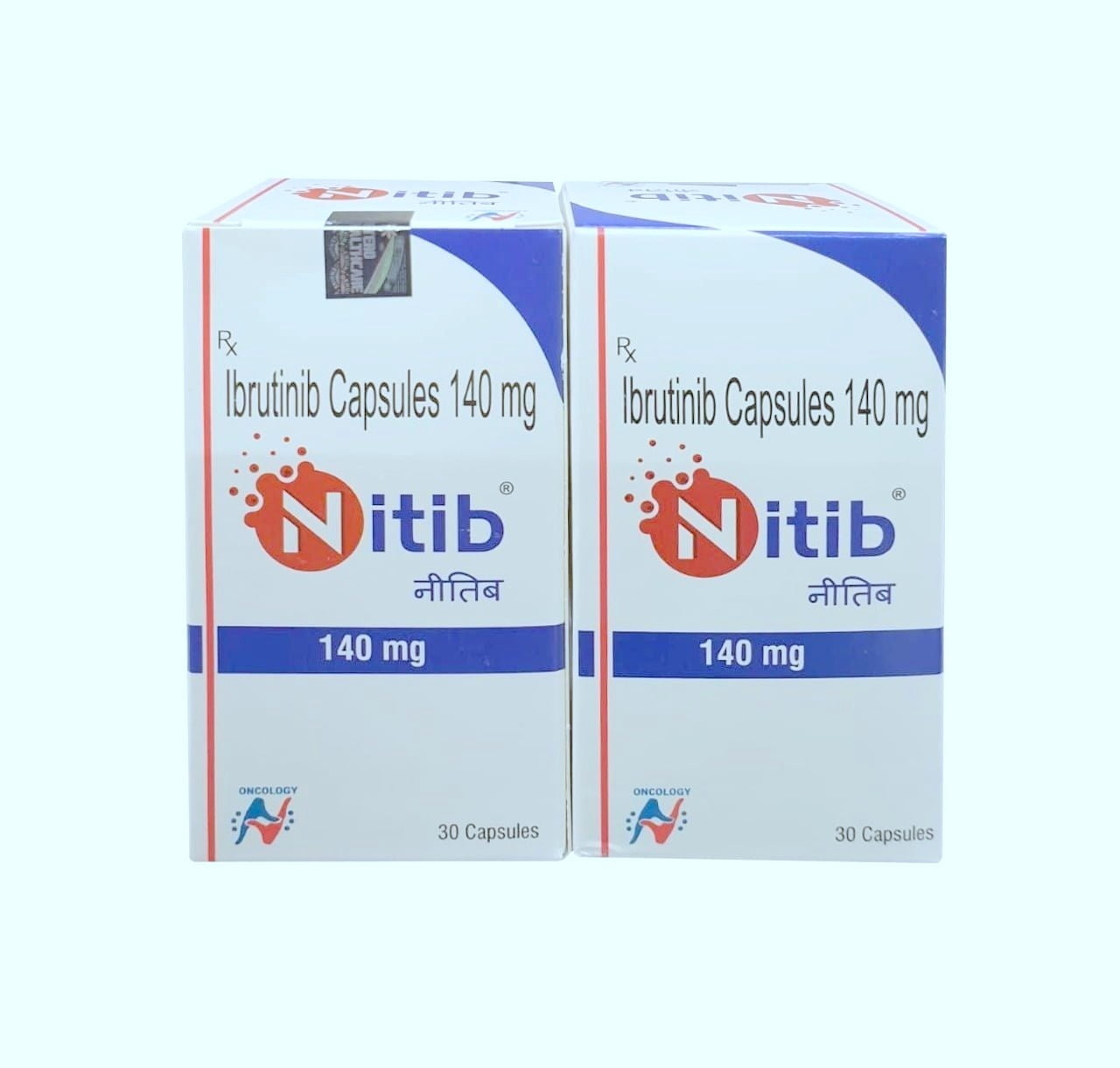

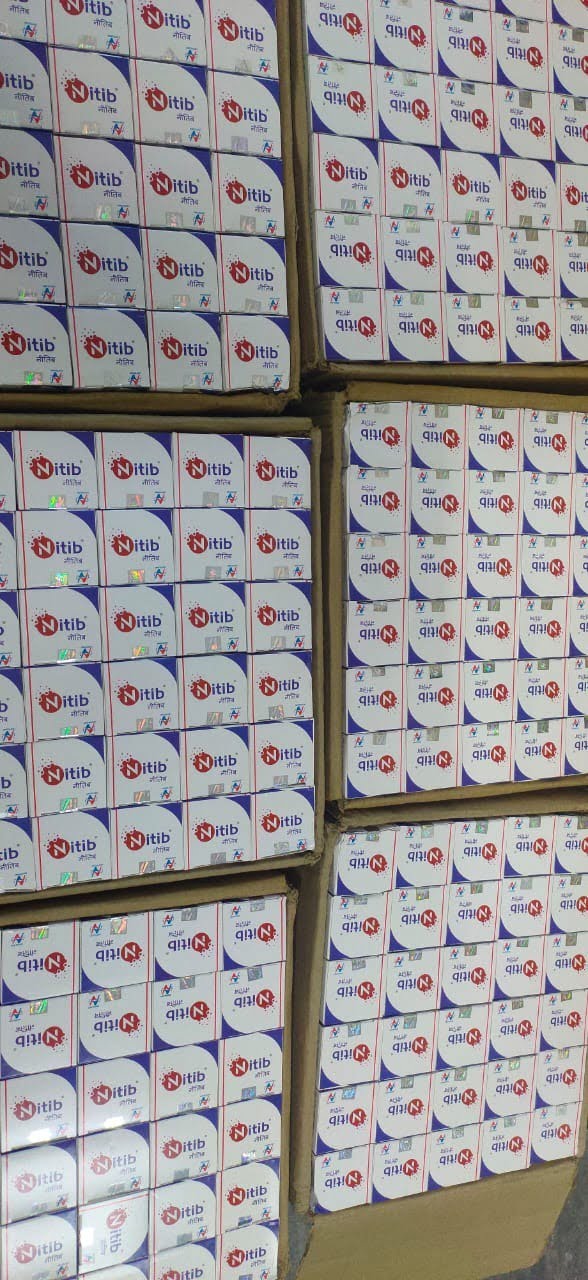

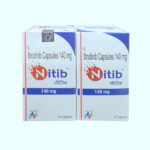
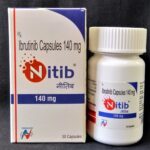


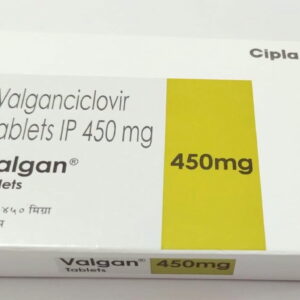
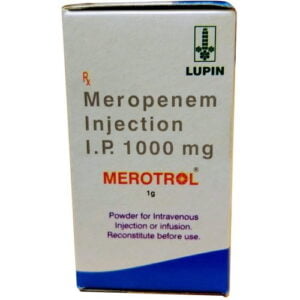

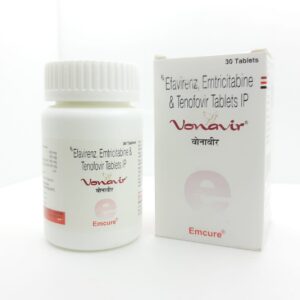
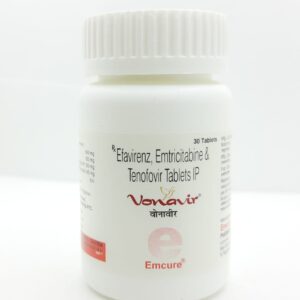

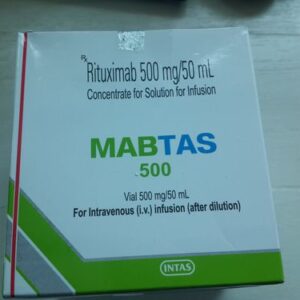
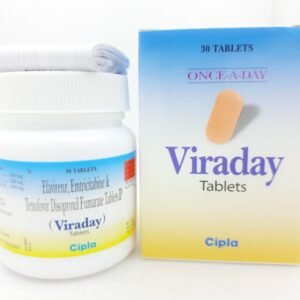
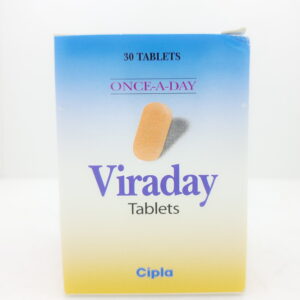
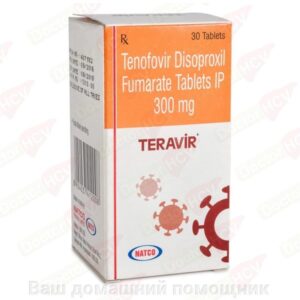
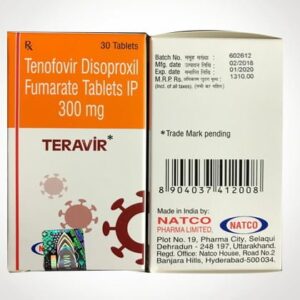
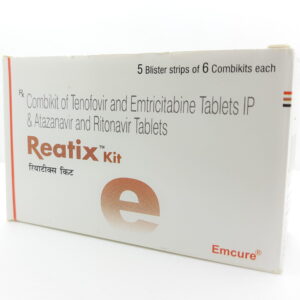
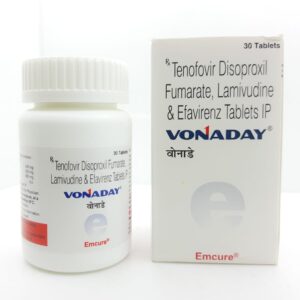
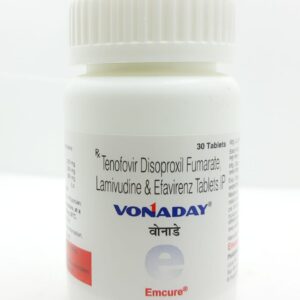
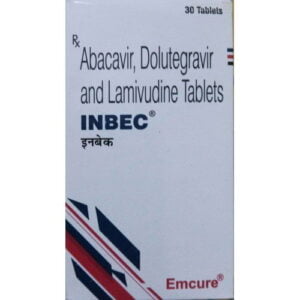
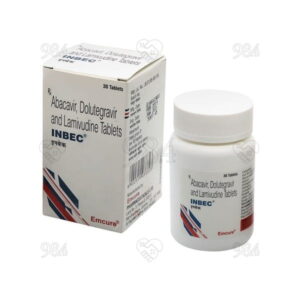
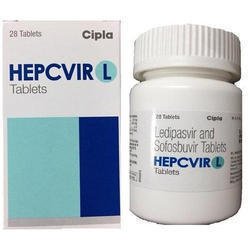
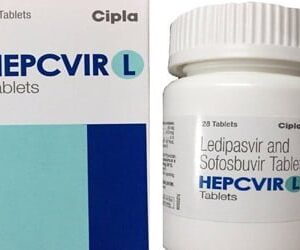
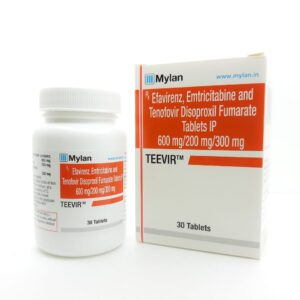
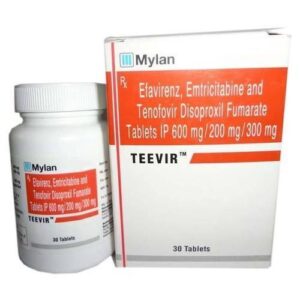

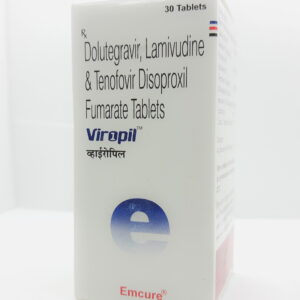
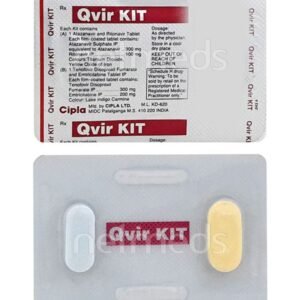
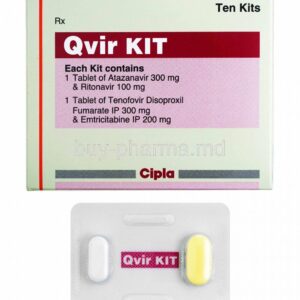
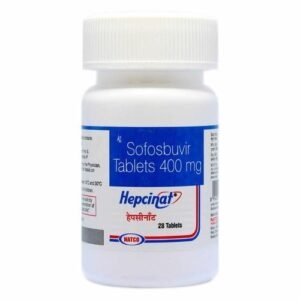
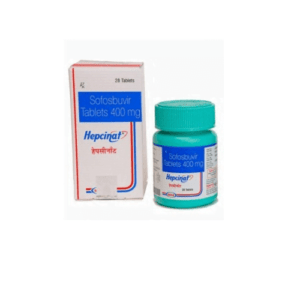
There are no reviews yet.